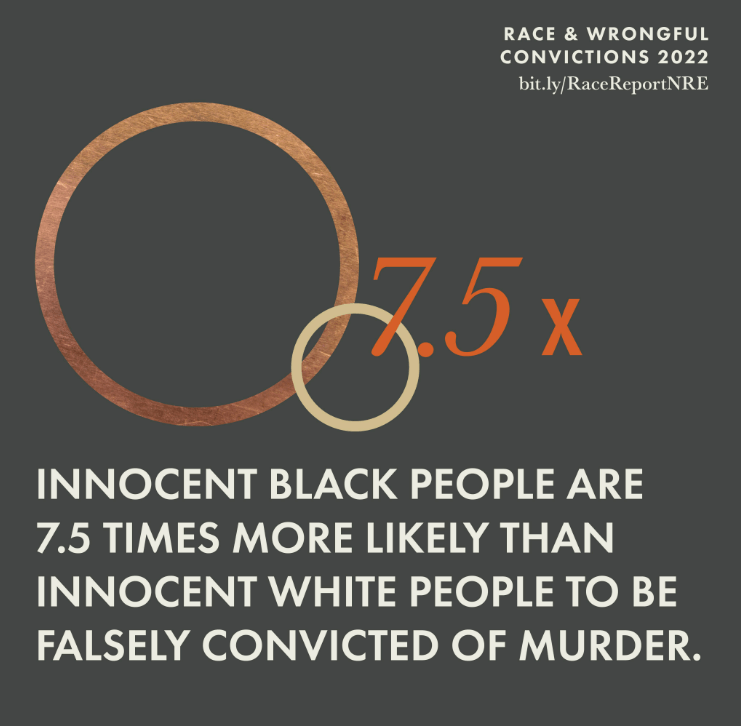Wrongful Convictions Disproportionately Impact Black Persons
Heidi • October 13, 2022
Report from National Registry of Exonerations amplify racial disparities in wrongful conviction rates

In light of the week of action for the World Day Against the Death Penalty, a recent report from the National Registry of Exonerations highlights the significant racial disparities in exoneration rates, and highlights yet another reason to abolish the death penalty and life without parole sentences and work toward realizing equal racial justice for all.
- Innocent Black people are about seven-and-a-half times more likely to be convicted of murder than innocent white people. That applies equally to those who are sentenced to death and those who are not.
- The convictions that led to murder exonerations with Black defendants were almost 50% more likely to include misconduct by police officers than those with white defendants.
- On average, Black murder exonerees spent three years longer in prison before release than white murder exonerees.
- Many of the convictions of Black murder exonerees were influenced by racial discrimination, from unconscious bias and institutional discrimination to explicit racism.
- Most innocent defendants who are convicted of crimes are not exonerated. Judging from the rate of false conviction among death sentences, at least several thousand defendants have been falsely convicted of murder in America in the past 40 years. Judging from the exonerations that have occurred, more than half were Black.
Read the full report "Race and Wrongful Convictions in the United States 2022" at the National Registry of Exonerations website.










